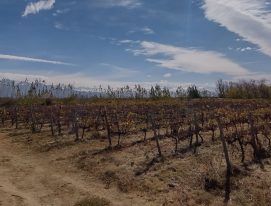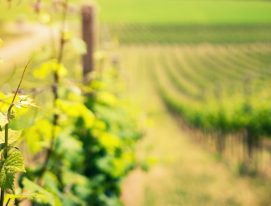Ana Viola is a distinguished figure on the Argentine wine scene: she is CEO of Malma Wines and President of the Chamber of Export Wineries of Patagonia. Her work and that of her family have been key to the development of wine production in the Province of Neuquén, especially in San Patricio del Chañar, a region that has been growing ever more prominent as a producer of fine wines. Today, in addition to her success running the family winery, Ana Viola is working to protect and promote the interests of the wine producers of Patagonia.
Interview with Ana Viola
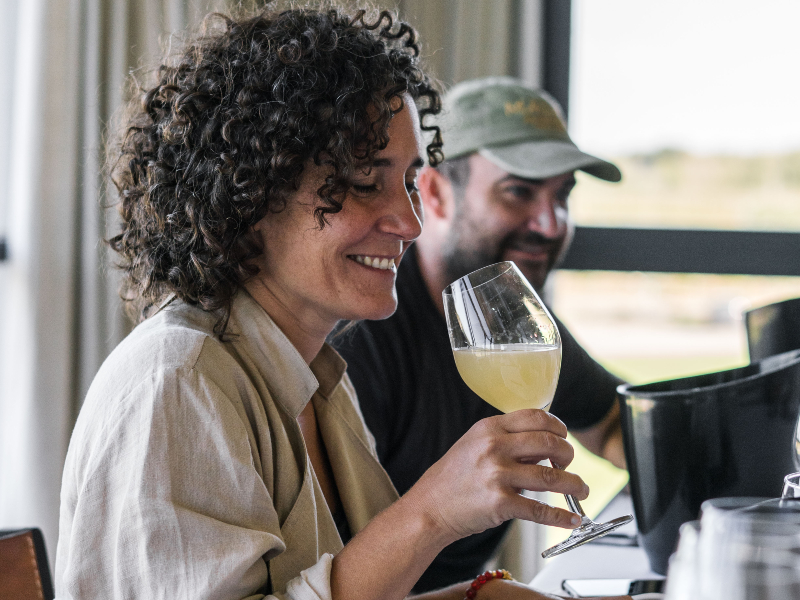
Regarding Malma’s status today, and looking back over your career, how do you think the industry has changed since you started out?
When the San Patricio del Chañar region first took off, it did so explosively, giving new impetus to Patagonia overall. It’s given me great pleasure to see how different valleys around Patagonia have begun to produce wines with similar profiles. Patagonia is an enormous region geographically, with small valleys close to sources of water. Although each is distinctive, they’re all quite remote and wind is a key factor. Being so far away from everything makes the enterprise a little trickier. But I’m very happy to see it continue to grow.
The wine map has shifted a little to the south due to issues related to climate change and the availability of water, among others. Patagonia is a difficult region, rustic in every sense of the word, but I think it has a great future.
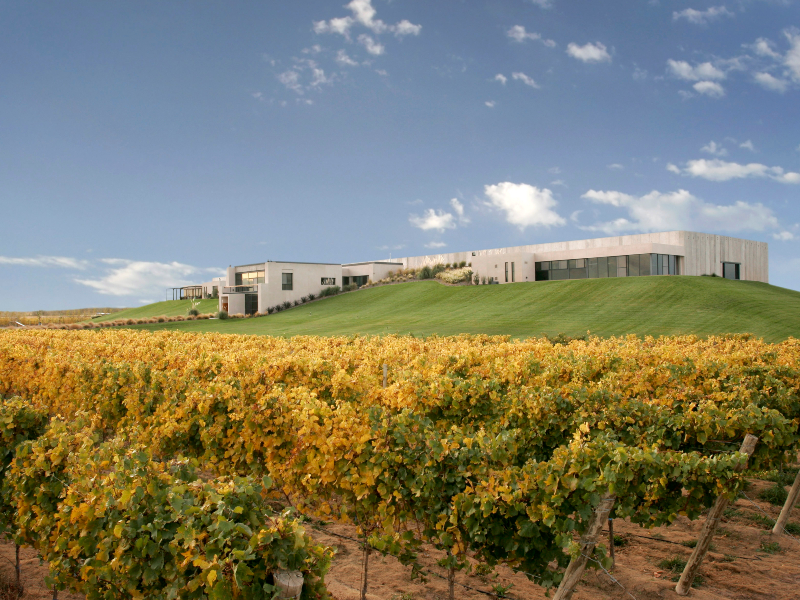
There’s been a long-running dispute with a foreign company over the use of Patagonia as a denomination. How is the Chamber working to resolve it?
There’s a foreign brand that anticipated Patagonia’s future as a wine region and also the symbolic potential and allure of Patagonia as a region. They want to trademark the word Patagonia, promote wines made and bottled in Chile under the denomination Patagonia and export them all over the world. We’re involved in a legal case in the United States and are working on different fronts in other countries. We have to oppose their attempts to register Patagonia in the Southern Cone. We’ve already told them that they’re misleading consumers. If they want, they can come and make the wines here and label them as being part of the Patagonia Geographic Indication, but they shouldn’t tell lies.
At the Chamber, we’re trying to defend ourselves with all the means at our disposal from these attempts at usurpation. By registering the trademark, they could even interfere with our exports, endangering sales from an entire geographic indication in Argentina.
That is why it’s so important that the market isn’t flooded with wines labelled Patagonia, because they would be fake, we’re a small region accounting for less than 2% of Argentina’s wine output. We need to maintain and expand our market niche.
What are Patagonia’s main challenges to consolidating itself as a viticultural brand?
Establishing a better connection between the different producers in the region, greater interaction with national universities and technical institutes because there’s serious lack of availability of industry professionals down here. From a commercial point of view, we need to band together more, and find more practical ways to export. We have a lot of work to do, it’s not just the Chamber, we’re also working with other entities such as the small business center in the Province of Neuquén, who do great work. We need to generate winemaking roots and a culture and train local people.
We want to provide training, good quality jobs and local resources to help us to evolve and grow. And from the consumer’s point of view, we need to educate and make people curious about Patagonia, reinforcing our image. Great wines are made all over Argentina but today everyone knows they need a Patagonian wine on their list.
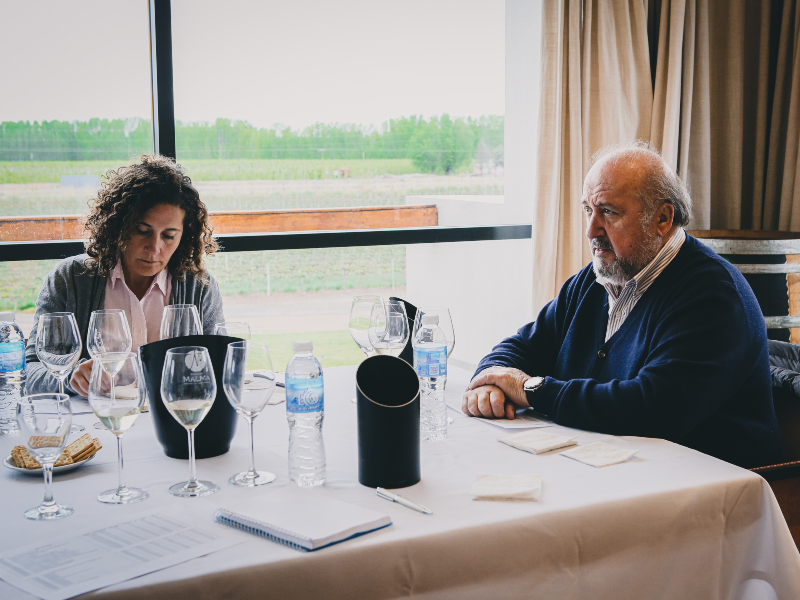
As the CEO of a winery, what’s your position on sustainability in the production of wines?
Production needs to be on the path to environmental sustainability, protecting our food sources, and using fewer pesticides and herbicides. It’s logical for the food we consume to be as environmentally friendly as possible but as a species we’re quite careless. If we want to survive long term, we need to do something. I’m a little romantic, I’d like to do it all: keep weeds at bay with sheep and things that end up being very difficult or expensive.
Some time ago I heard an Italian producer say that in reality it’s those who don’t work naturally who ought to declare that on their labels, and those who don’t employ natural methods ought to pay to certify that fact. At Malma, we’ve been implementing the Bodegas Argentinas Sustainability Protocol, last year we measured our carbon footprint so we can reduce it. We have organic certification for our vineyards, we’re making organic wines and are evaluating getting Triple Impact B-Corp certification. It ends up benefitting everyone: you take care of the earth and make better products.
How do you view progress with incorporating more women into the wine industry, especially in Patagonia?
I can speak for Malma: we’re half and half, we’re well represented. In this region, due to the distances involved and other factors, it can sometimes be difficult to find women working in the field or in production roles. And it’s also true that care work is still exclusively the role of women in the majority of families and that makes it hard to hire women for certain roles. It’s something that will take a long time to change but in fact there are a lot of women agricultural engineers and oenologists and I think that’s wonderful.
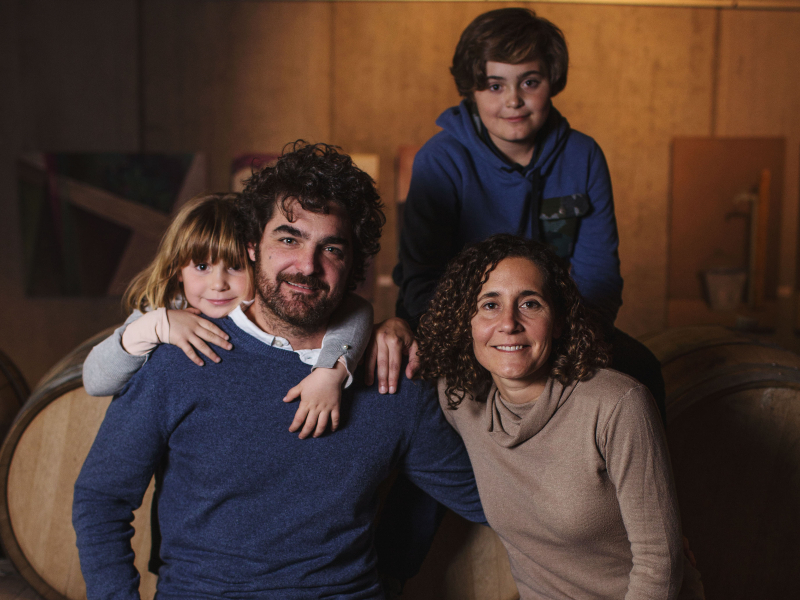
To be a businesswoman in Argentina is…
Anything but dull. You have to be very tough and you’ll always have something to keep you occupied…
Argentine wine in the world today is…
Proof of the fact that our country deserves to be discovered, or rediscovered. We are producing more and more interesting wines that reflect the diversity of the different regions of Argentina, and the quality is outstanding. The world is our oyster. Argentine wine is like a lion cub. We’ve still got a lot of growing to do, we have potential and we need to realize it, but we need the right conditions. The product is of exceptional quality with added value: it should be a matter of state.


